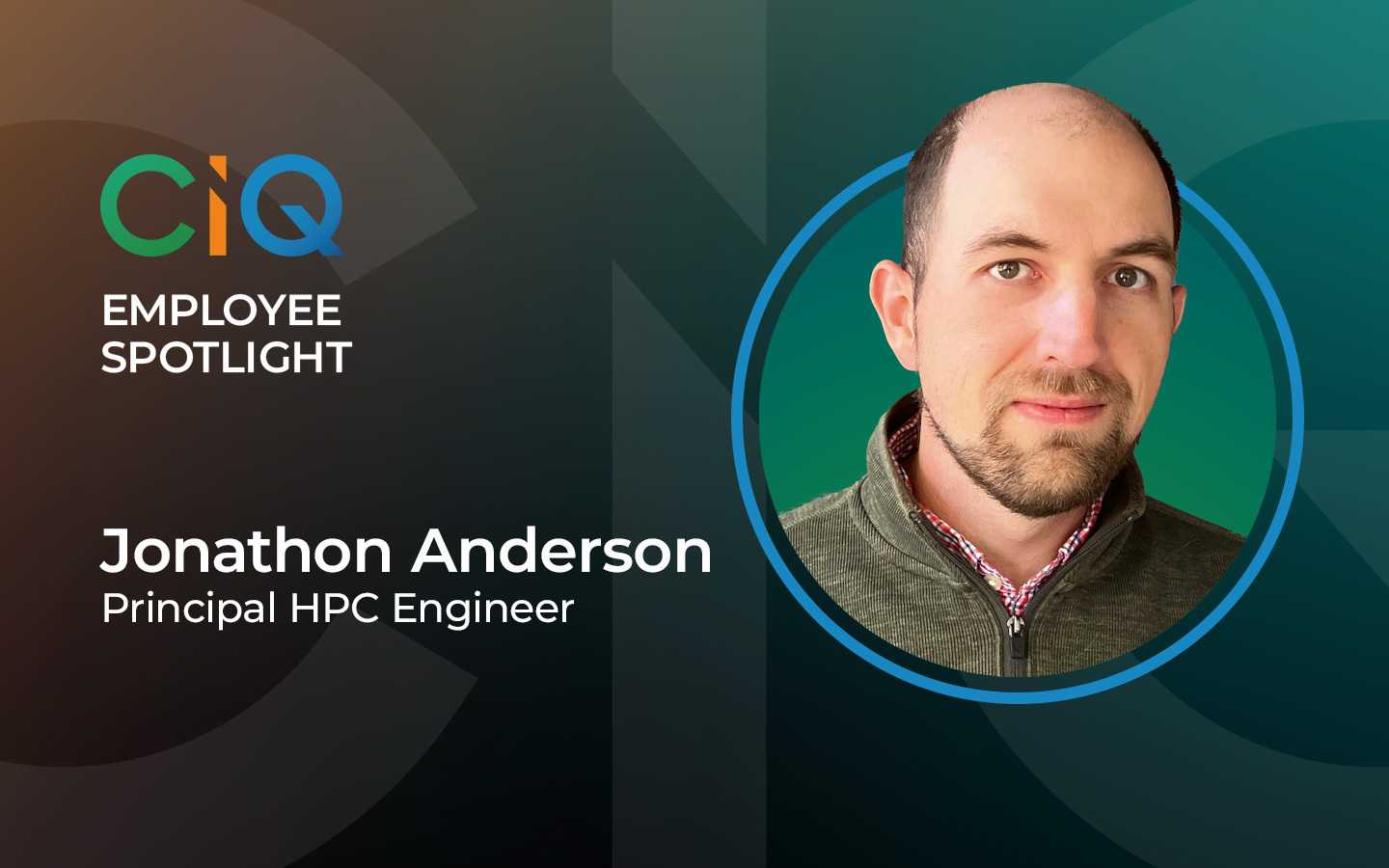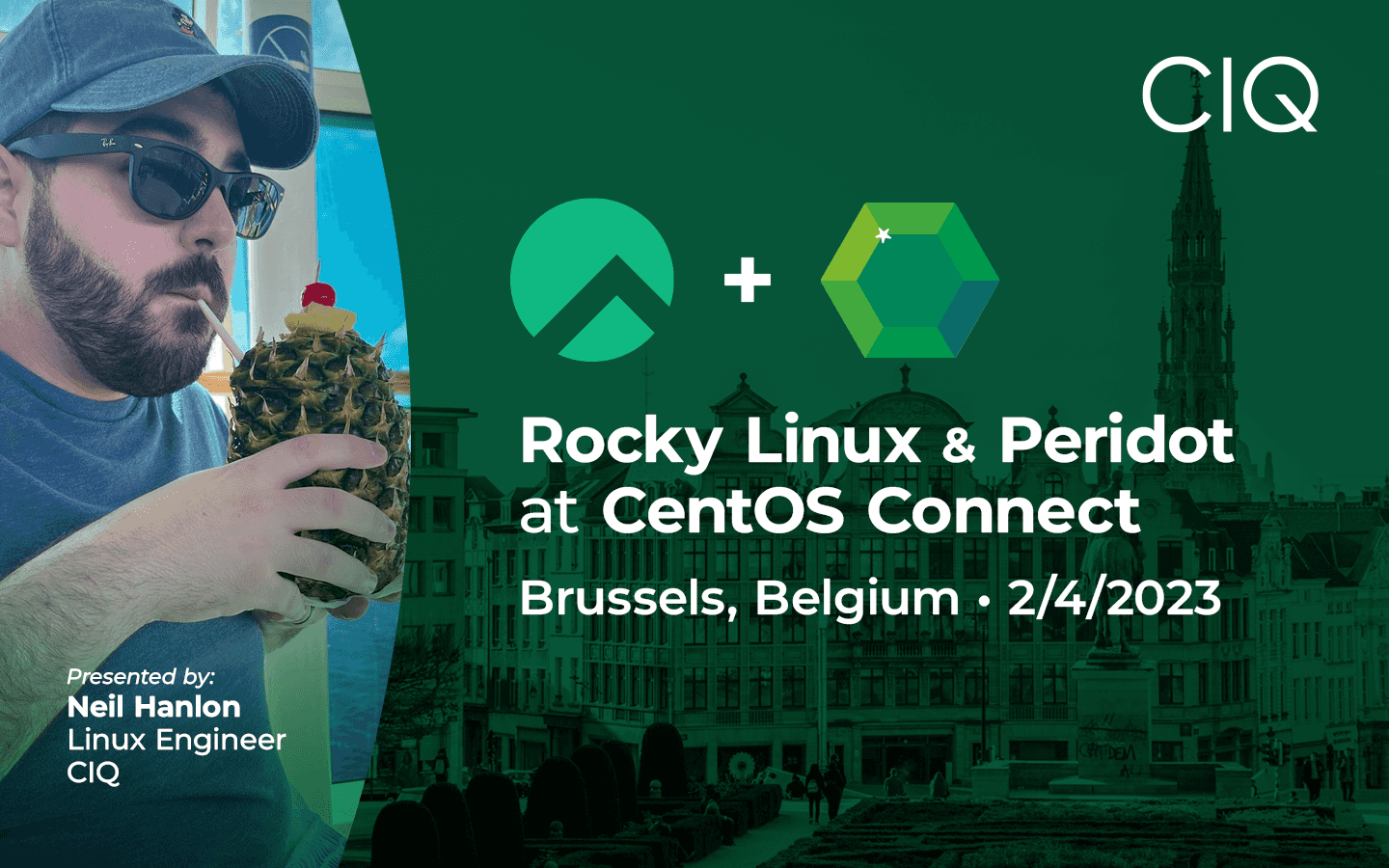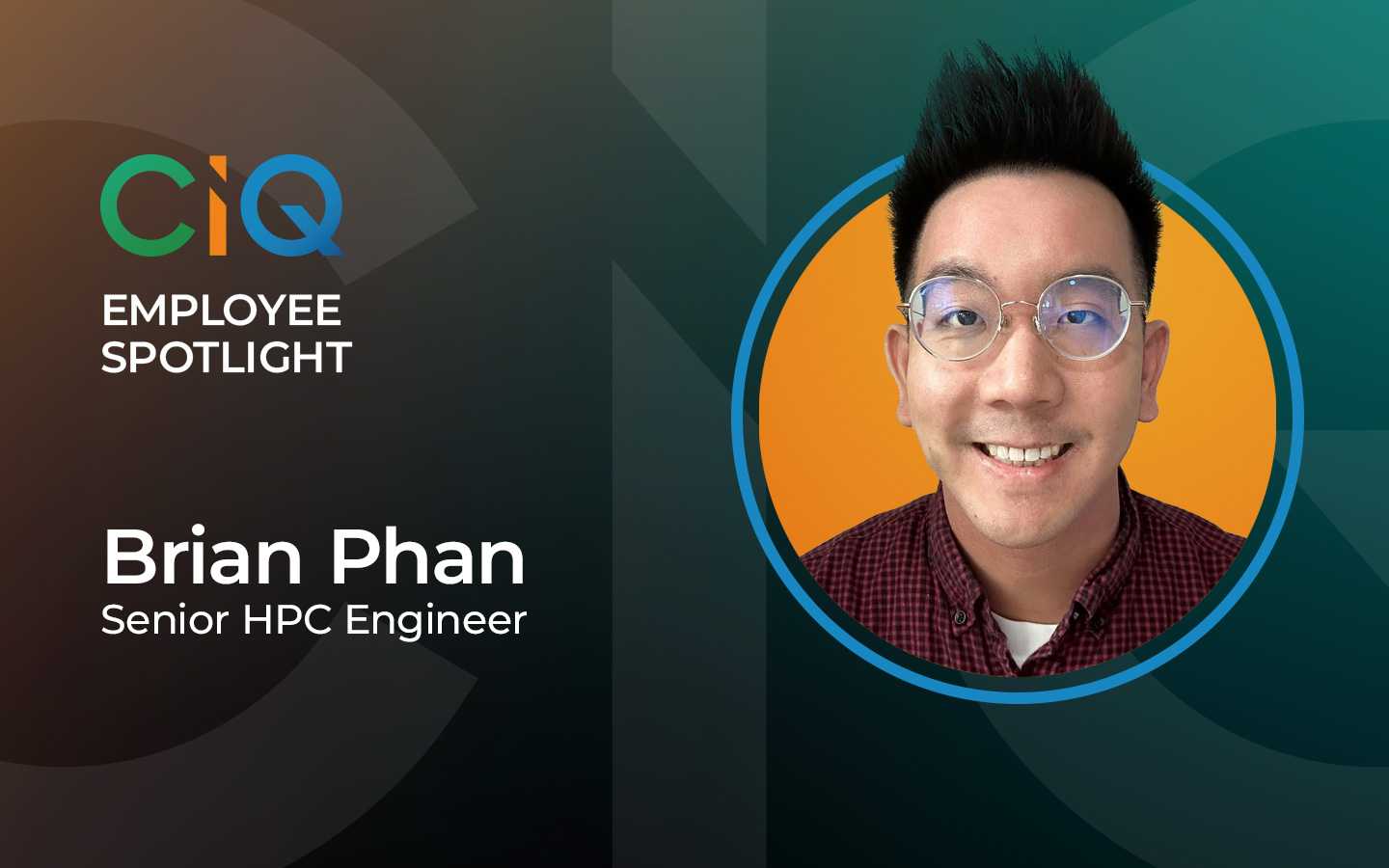2 min read
CIQ Employee Spotlight: Jonathon Anderson

Jonathon Anderson, self-described “supercomputing mascot since 2007,” is the focus of our latest employee spotlight. Keep reading to learn more about his HPC background, why Warewulf drew him to CIQ, and what motivates him to take a break from his engrossing work.
What's your role in the company, and what do you enjoy most about it?
I come to CIQ with a background in HPC Systems Administration and Engineering. Right now I’m putting that experience to use in the Fuzzball team, helping to ensure that Fuzzball will integrate seamlessly with HPC and AI workflows, whether it’s used in the cloud or on-prem.
I also help in the Warewulf open-source community and its technical steering committee, contributing a bit of development and supporting our customers with their deployments.
How did you become interested in a career in the HPC field?
An upperclassman at my university built a Beowulf cluster for his senior project out of a bunch of old Dell OptiPlexes scavenged from the IT department. At the time, I had no idea what that meant: I thought Beowulf must be a software platform that magically allowed programs to run on multiple computers at once! But following his lead, I pursued an internship opportunity at Argonne National Laboratory, which introduced me not only to HPC and supercomputing but to a community of friends and colleagues that I continue to keep in contact with today.
What drew you to CIQ?
A colleague of mine mentioned, “It looks like Greg is working on Warewulf again; we should look into that.” Previously, my team had evaluated and decided against using Warewulf 3; but the design of Warewulf v4 appeared to address precisely all of the complaints that we had had. At the time, I didn’t know who Greg was; but when I started reading about CIQ as a support provider for Warewulf, I realized that he was “associated” with Apptainer, Rocky Linux, CentOS… all of these foundational parts of the software ecosystem that I had either been using for years or was very interested in. And that Fuzzball thing seemed really interesting, too! The opportunity to be a part of that team was too providential to ignore.
What do you do to stay motivated and inspired in your work?
When I’ve got a good, technical problem that I don’t yet understand, the motivation isn’t really a problem: the bigger problem is to stop working when 5pm comes around. Thankfully, I’ve got a wonderful family, including a wife and three boys, who pester me as soon as 5pm rolls around to stop working and spend time with them–especially my youngest, who is all too eager to tell me, “Dad! It’s five-oh-six! That’s after five!” And while sometimes work calls me away, and sometimes my attention gets sucked into yet another interesting problem, it’s for them that I do the work, and that drives me to do the best job that I can.
What advice would you give to someone considering a similar career, especially at CIQ?
The most important skill, I think, is in not being afraid of what you don’t know. Finding solutions to problems is a skill in itself, and learning is often part of the job. Sometimes it means you’re learning a new (programming) language. Or sometimes it means you’re digging into a customer’s system or requirements. Or sometimes it means you’re learning about a hot new technology or practice. But the moment you let yourself be afraid of not knowing something, it gets harder to learn. And if you stop learning, especially in this kind of an environment, you get left behind. So always keep learning, and lean into things you don’t know, or aren’t already comfortable with.
Built for Scale. Chosen by the World’s Best.
1.4M+
Rocky Linux instances
Being used world wide
90%
Of fortune 100 companies
Use CIQ supported technologies
250k
Avg. monthly downloads
Rocky Linux



